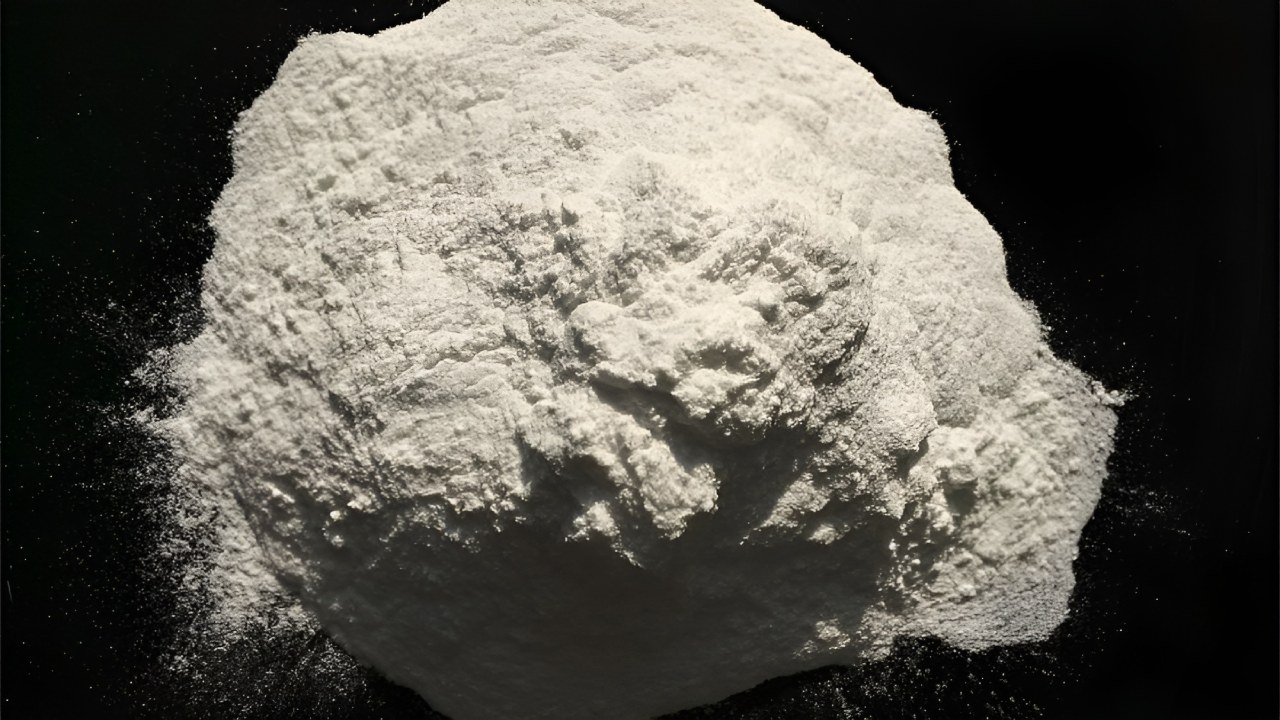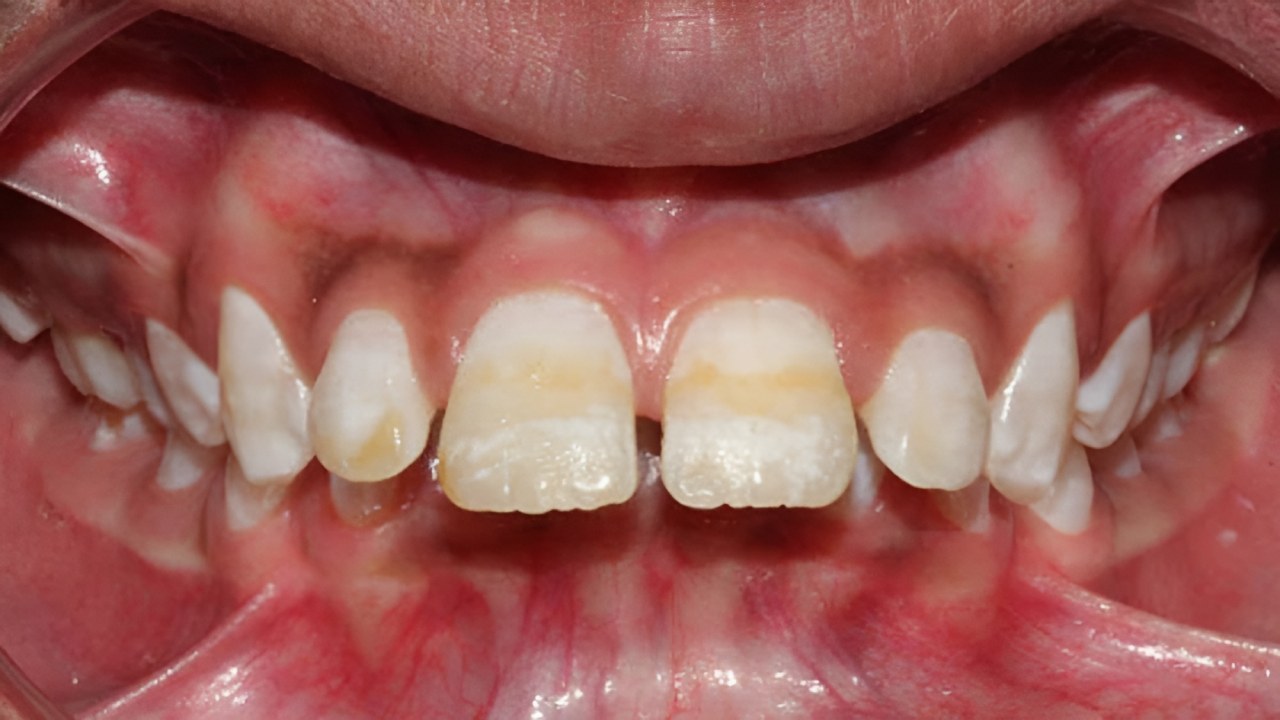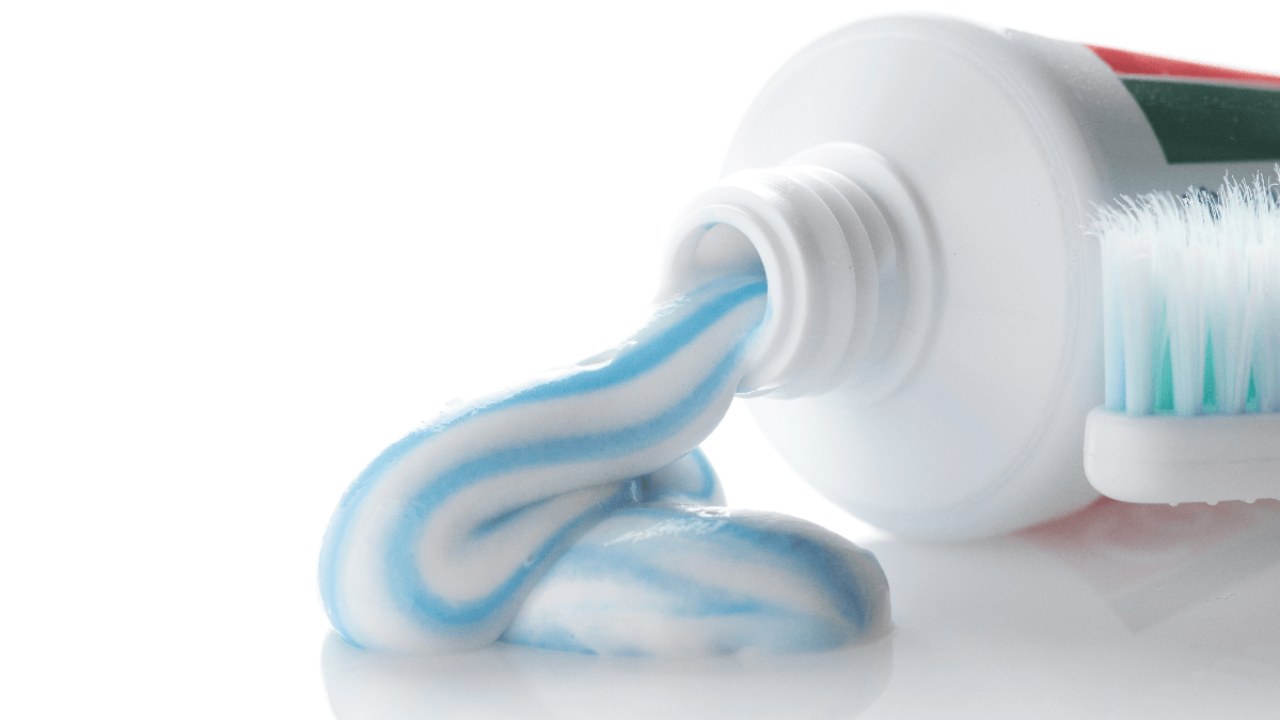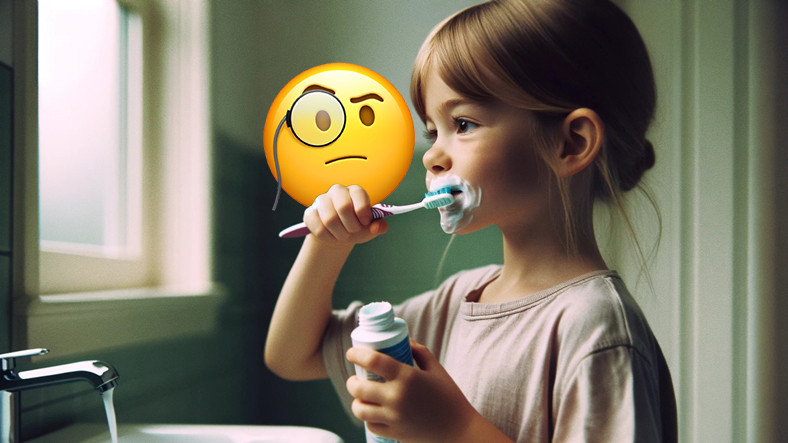Especially children, It is even more convenient to swallow toothpastes due to their different flavors. and these amounts can become excessive without the parents noticing.
When this is the case, two questions inevitably come to mind: What happens when we swallow toothpaste? And are these pastes really harmful?
The main active ingredient in most toothpastes is sodium fluoride.

sodium fluoride
This substance protects against tooth decay and which helps remineralize tooth enamel It’s an important ingredient, but when it comes to swallowing toothpaste, things get complicated.
A tube of toothpaste contains approximately 0.15 percent fluoride Contains. To be fatal, an adult would have to swallow the equivalent of 8 tubes of toothpaste. However, such a situation can cause many health problems rather than be life-threatening.
For example, dental fluorosis causes pale white and yellowish stains on the teeth after ingesting too much fluoride during childhood.

Dental fluorosis, which does not damage adult teeth but only affects children, causes discoloration of tooth enamel and this change is permanent. Moreover, it is not possible to completely undo the damage. In some cases, teeth can even wear out.
Dental fluorosis again More common in children under 8 years of age It is very important to closely monitor children’s toothpaste use.
Whether a child or an adult, if someone uses too much fluoride-containing toothpaste, he or she may experience skeletal fluorosis.

Skeletal fluorosis is much more disturbing than damage to tooth enamel. Causes bones to harden and lose their elasticity It increases the risk of bone fractures.
Additionally, consuming large amounts of fluoride at one time can cause poisoning. Diarrhea, nausea, vomiting, drooling, irregular heartbeat and eye irritation are among the symptoms of poisoning.
On the other hand, high fluoride intake during pregnancy can also cause developmental delays in some children.
An indication of this is is the link between high fluoride exposure and IQ decline. Epidemiological studies on this topic also show that this substance is a neurotoxin that disrupts the intellectual development of children.
Damage to the thyroid glands, which can lead to hyperthyroidism, is another possible consequence of long-term fluoride exposure. If the person has hypothyroidism a deficiency in the production of vital hormones by the thyroid gland It can be concluded that.
Fatigue and hair loss are the most common symptoms of this condition. Hyperthyroidism, which also develops as a result of excessive fluoride consumption, bone problems It also entails. This condition causes a calcium deficiency and makes the bones more fragile.
In summary, when fluoride is taken in the right dosage, it helps keep tooth enamel strong, prevents bacterial growth and prevents tooth decay. However, excessive exposure to this substance It can cause various and irreversible discomforts.
Sources: Jackson Smiles Family Dentistry, Dr. Brite, Cool Dental
Our other content that may interest you:
Follow Webtekno on Threads and don’t miss the news
















